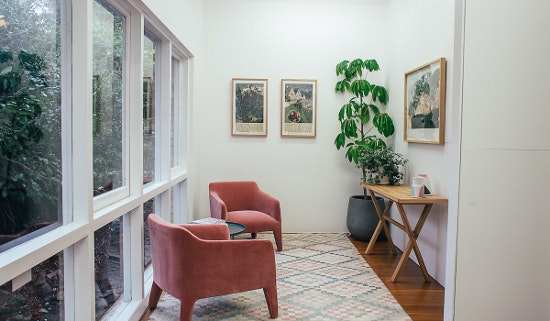The layout of a medical examination room is essential to the success of any hospital or clinic. It’s a necessary part of making people feel at home and enhancing their entire experience. But this may not be easy, particularly when trying to stay under a specific financial limit. There are, thankfully, cost-effective methods to lay out a medical facility’s examination rooms.


Lighting
Examining room lighting is crucial. Accurate diagnoses, patient comfort, and an engaging ambiance are all things that may be improved by a lighting design that has been given careful consideration. The best way to save costs when designing the arrangement of a medical examination room.
Enough Sunlight
In addition to reducing your energy bill, a more welcoming and pleasant space may be created strategically using natural light. For this purpose, it is helpful to have plenty of windows or skylights installed so that natural light may flood the inside. Having walls and surfaces reflective of light may also make a space appear brighter and more significant.
Synthetic Light
Whenever possible, natural light should be used; otherwise, artificial light should be used. The atmosphere and atmosphere of a space may be significantly altered by the lighting fixtures used. Bright, steady lighting that simulates natural light is ideal for exam rooms. Using fluorescent or light-emitting diode (LED) technology is helpful. Lighting that can be lowered or brightened as required is also beneficial in producing a soothing ambiance.
Furnishings and Accessories
The furniture and accessories that are present in a medical exam room have the potential to have a significant impact on the ambiance of the space. To keep expenses down, consider the following when designing a new medical facility.
How to Pick the Right Furniture
When purchasing new pieces of furniture for a medical examination room, the primary goals should be to emphasize usefulness, comfort, and durability in that order. Every patient has to be given the opportunity to choose a comfortable position on the treatment tables or chair. Both should include a mechanism that allows for height adjustment. Because this will assist in preserving a healthy environment, it is beneficial to have furniture that does not need a great deal of delicate loving care in order to be maintained clean.
Accessories for Decorating
Decorating a medical exam room with art and plants might help make patients feel at ease. Careful consideration must be given to the placement of these accessories so that they do not detract from the room’s core function, which is to offer medical treatment. Putting in a few potted plants or flowers may make the space seem warmer and more welcoming.
Style and Materials
The choice of wall paint and other decorative accents in a medical examination room can have a significant impact on the atmosphere of the space. It is the best way to save costs when designing the arrangement of a medical examination room.
Choosing a Color
The paint, carpet, and surface colors chosen for a medical examination room may have a significant impact on the atmosphere of the space. Because they provide the illusion of openness and freedom, white, light blue, and yellow are excellent color choices for the room. There is evidence that darker colors, such as blues and greens, might help create a more calming atmosphere.
The Final Steps
Adding decorative accents like artwork, drapes, and window coverings may make a medical exam room seem more finished. It is essential to make a thoughtful decision when selecting these accessories, so they do not detract from the room’s core function. Because of their potential to foster a soothing and uncomplicated atmosphere, simple and modest designs are generally the ideal option.
Conclusion
As long as you put in the time and effort ahead of time and pay attention to every detail, you can make a beautiful and practical medical exam room without busting the budget. Creating a relaxing place for your visitors may be possible without breaking the budget by strategically using natural light, carefully selecting furniture, and using light colors and simple finishes. The health and well-being of patients may improve with the addition of comforts such as soft lighting, comfortable furniture, and calming colors to the patient’s surroundings.
















